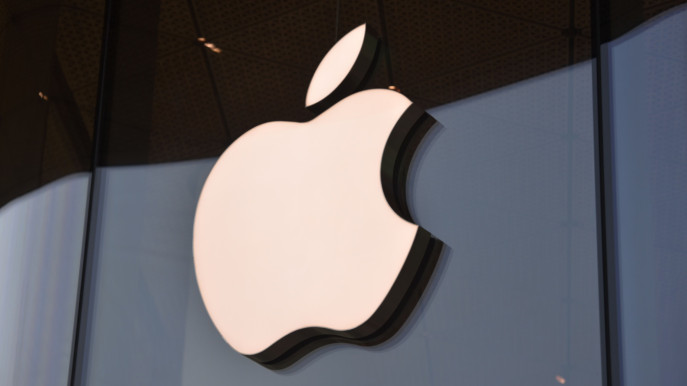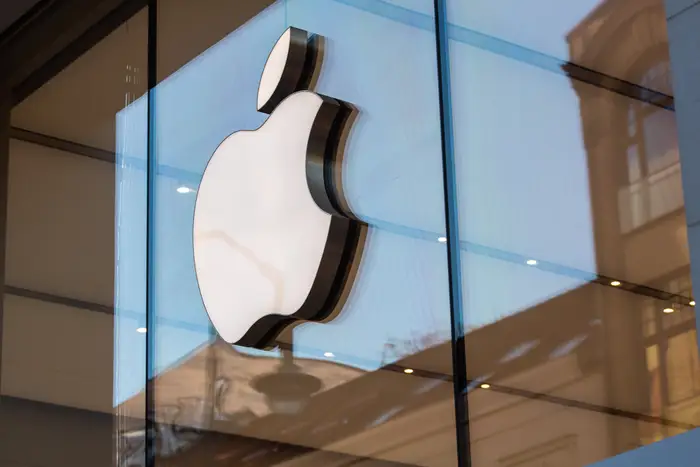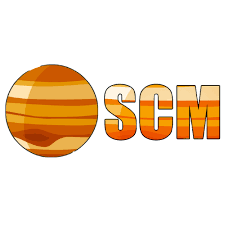
Key takeaways
1. As a sign of the seriousness of the transgression, Apple was fined a record $2 billion by the European Union (EU) for antitrust infringement.
2. According to the EU, Apple abused its market dominance by placing unjustifiable limitations on app developers, especially with regard to in-app purchases and distribution.
3. The EU’s dedication to upholding fair competition and shielding customers from anti-competitive behavior in the digital economy is demonstrated by this fine.
4. The decision may force Apple to modify its policies and procedures in order to comply with EU legislation, which might have a substantial impact on the company’s business model and operations.
5. The fine acts as a reminder to other corporate behemoths that antitrust infractions in the digital industry are being actively monitored by the EU and are subject to enforcement action.
6. Apple has said that it would appeal the ruling, suggesting that the legal dispute may drag on and possibly result in more developments in the case.
7. The verdict in this case could have an impact on how the technology industry is regulated with regard to antitrust matters, possibly resulting in stronger rules and enforcement measures.
8. Both users and app developers will be closely monitoring the fallout from this decision, as it may result in more competition, better terms for developers, and more options for users in the app store.
9. The fine emphasizes how crucial it is for businesses to thoroughly evaluate their market position and operational procedures to guarantee adherence to antitrust laws across many jurisdictions.
10. This case reminds us of the continuous efforts being made around the world to control and handle antitrust issues brought about by the growing dominance of IT corporations in the digital economy.

Overview of the EU Antitrust Fine
The European Union has fined Apple $2 billion for antitrust violations, marking the highest fine the EU has ever levied for anticompetitive behavior.
The fine stems from allegations that Apple abused its dominant market position, particularly with regard to its App Store policies and the requirement that users use its in-app purchase mechanism.
Apple is accused by the EU of unjustly disadvantageous other app developers and suppressing competition by levying tight taxes and regulations on them.
It is anticipated that the tech sector as a whole would be significantly impacted by this historic judgment.
Impact on Apple’s Market Dominance
Apple is at a turning point that has the ability to change the way the industry functions as it deals with the fallout from the historic antitrust fine levied by the European Union. Discussions concerning fairness and competition in the digital marketplace have been stoked by the increased attention around Apple’s dominance over the App Store and its contentious fee structure.
Apple needs to reconsider its business tactics and adopt a more open and fair approach to app developers in light of the $2 billion fine. Apple’s dominance may be challenged by rivals and developers as a result of demand to change its methods, creating a more dynamic and diversified environment.
Following this decision, the tech sector is ablaze with excitement as players watch for the opening of a new front in the struggle for market dominance and innovation. This fine has far-reaching effects beyond Apple and indicates a change in the global tech industry toward more responsibility and regulation.
One thing is certain as the dust settles on this historic ruling: in order for businesses to stay ahead of the curve, they will need to navigate a complicated web of antitrust laws as the digital sector enters a new phase of increased scrutiny and regulation. This fine will undoubtedly have an impact on the entire sector, opening the door for a more equitable and competitive digital marketplace.
Legal Ramifications for Tech Industry
This antitrust fine has far-reaching legal repercussions that are shocking the entire tech sector, not just Apple. Legislators and regulators from all around the world are keeping a close eye on this case because they see how it might establish a novel precedent for holding internet companies responsible for unfair business practices.
There is an impending sense of urgency for tighter rules and increased scrutiny of other significant participants in the tech world, including industry heavyweights like Google, Amazon, and Facebook, following the EU’s record-breaking penalties against Apple. The verdict in this lawsuit is likely to have a cascading effect, forcing internet businesses to reassess their business plans and make sure they are fully compliant with antitrust rules in order to avoid paying similar large fines in the future.
A paradigm shift in regulatory enforcement is coming, and enterprises in the global internet space need to be extremely cautious when navigating the changing legal landscape. This significant decision marks a turning point for the sector by highlighting how important it is to maintain openness, equity, and compliance with antitrust laws in order to promote a more inventive and competitive digital market. The consequences of this fine extend beyond Apple and will have a significant impact on how digital policy is shaped going forward on a global level.
Reactions from Industry Experts
The wide range of responses from professionals in the field illustrates how intricate the EU’s antitrust penalty against Apple is. Some people raise concerns about the decision’s possible effects on innovation and competitiveness in the business, while others see it as a crucial step towards making internet companies answerable for their activities.
Proponents of the penalties applaud the EU for making it abundantly evident to large digital corporations that abusing their market dominance would not end well. This position highlights how crucial it is to have fair competition and protect consumers in the online sector.
However, detractors of the fee contend that by placing onerous restrictions on business executives, it may inhibit innovation and reduce competitiveness. They make good comments regarding the necessity of striking a balance between enforcing antitrust laws and encouraging innovation and expansion in the tech industry.
The opposing points of view draw attention to how difficult it is to regulate the tech sector and how difficult it is to strike a balance between market control and competition. It will be interesting to watch how industry participants and stakeholders negotiate the changing terrain of competition law and antitrust regulation as the global digital community struggles with the ramifications of this historic decision.
Future Implications for Global Tech Regulation
In addition to raising significant concerns about the need for international tech regulation, the EU’s antitrust fine against Apple has started a vital discussion about the future of consumer protection and competition in the digital age.
An increasing number of people are aware of the possible threats that digital giants like Apple may represent to consumer interests and fair market competition, given their continued enormous power and influence. The EU’s firm action against Apple is a clear reminder that when it comes to anticompetitive behavior, no business, regardless of size, is above the law.
Regulators everywhere should take note of this historic case and reconsider their enforcement tactics in light of the quickly changing digital reality. It draws attention to the urgent need for an approach to antitrust enforcement that is more proactive and coordinated in order to properly handle the issues raised by digital giants and protect industry competition and innovation.
Furthermore, this case might have an impact on more than just specific businesses and countries; it might encourage international regulatory organizations to work together more closely and communicate more frequently. In order to ensure that all participants operate under a framework that fosters competition, innovation, and consumer welfare on a global scale, the tech industry may benefit from the push for unified rules and regulations.
Essentially, the fine imposed by the EU on Apple is a catalyst for a shift in how we view and govern the tech sector, rather than merely a punitive measure. It emphasizes how crucial it is to have proactive and progressive regulatory strategies that can keep up with the quick advancement of technology and guarantee an equitable and competitive digital marketplace for all.

Conclusion
In conclusion, Apple received a record $2 billion antitrust penalties from the EU, which serves as a stark reminder of the value of fair competition in the digital market. The decision emphasizes how dedicated the EU is to safeguarding consumers and making sure that big digital corporations don’t take advantage of their market dominance. After criticism of Apple’s policies toward app developers and in-app purchases, this hefty fine was assessed. The lawsuit could result in stronger laws and enforcement measures, which would have wider effects on the technology sector. The outcome of Apple’s appeal will influence future antitrust laws and the level of competition in the digital industry. This lawsuit highlights the ongoing global efforts and serves as a reminder that digital companies are not immune to regulatory scrutiny. to address antitrust concerns to promote fair and competitive markets.
PAQ
Why was Apple fined?
Due to accusations of antitrust activity involving its App Store policies and the requirement that users use its own in-app purchase mechanism, Apple was penalized by the European Union. Apple was charged by the EU of abusing its market dominance by charging excessive fees and regulations to app developers, suppressing competition, and unfairly disadvantageous other industry participants. This extraordinary $2 billion punishment establishes a historic precedent for the global tech sector by making it abundantly evident that tech behemoths must abide by laws governing consumer protection and fair competition.
Why was Apple fined 1.8 billion euros ($ 1.95 billion by European Union regulators?
Regulators in the European Union fined Apple 1.8 billion euros ($1.95 billion) over claims that it engaged in antitrust behavior with regard to its in-app purchase policies and the need that users utilize its own platform. Apple was charged by the EU of abusing its market dominance by charging excessive fees and regulations to app developers, suppressing competition, and unfairly disadvantageous other industry participants. This extraordinary fine establishes a ground-breaking precedent for the global tech industry by serving as a stark warning to tech companies that they must adhere to fair competition laws and consumer protection regulations. The significant fine is a reflection of the EU’s determination to ensure fair competition for all parties involved in the digital economy and to hold corporations such as Apple responsible for their actions.
How much has Apple been fined?
Regulators in the European Union have fined Apple an astounding 1.8 billion euros ($1.95 billion) for alleged antitrust infractions involving its in-app purchase policy and App Store operations. This substantial fine serves as a clear reminder that when it comes to fair competition and consumer protection laws, no business, regardless of size or market dominance, is above the law. In addition to holding Apple responsible for its acts, the EU’s historic ruling establishes a precedent for the global IT sector and heralds a new age of more regulation and inspection aimed at ensuring fair competition for all participants in the digital economy.
What is the Apple issue in Europe?
The European Union’s recent antitrust fine against the computer behemoth, Apple, is at the center of the European controversy surrounding the company. Due to its policies in the App Store and the requirement that users use its in-app purchase mechanism, Apple was judged to have engaged in anticompetitive behavior by EU regulators. This problem draws attention to the mounting worries about the dominance of tech giants and the necessity of fair competition, as well as consumer protection, in the digital economy. Setting a precedent for the global tech industry, Apple’s heavy sentence of 1.8 billion euros ($1.95 billion) is a major wake-up call to reassess its business plans and comply with antitrust laws. This historic case has marked a turning point in the conversation about competition and regulation in the tech industry. towards increased accountability and transparency in Europe and beyond.
Apple’s response to the EU charger is anticipated to be strategic and calculated, considering the significant implications of the antitrust fine on its operations and reputation. In light of the hefty 1.8 billion euros ($1.95 billion) penalty imposed by European regulators, Apple is likely to challenge the decision through legal avenues while also evaluating its App Store practices to ensure compliance with antitrust laws.
The tech giant may seek to appeal the ruling, citing potential discrepancies in the investigation process or contesting the validity of the allegations against them. Apple’s legal team is expected to mount a robust defense, leveraging its resources and expertise to navigate the complex legal landscape and mitigate the financial and reputational repercussions of the fine.
Furthermore, Apple may proactively engage with regulators and stakeholders to demonstrate its commitment to fair competition and consumer protection. The company could implement reforms to its App Store policies and in-app purchase system, addressing the concerns raised by the EU and fostering a more transparent and level playing field for app developers and consumers.
All things considered, Apple’s reaction to the EU charger is probably going to be complex, including legal actions, policy changes, and stakeholder outreach initiatives meant to protect its market share and maintain regulatory compliance. Apple’s future trajectory in the global marketplace will be greatly influenced by its ability to adapt and negotiate regulatory difficulties as the digital industry continues to change. Apple’s future trajectory in the global marketplace will be greatly influenced by its ability to adapt and negotiate regulatory difficulties as the digital industry continues to change.
I hope this article was helpful for more checkout our previous blog post by clinking here

